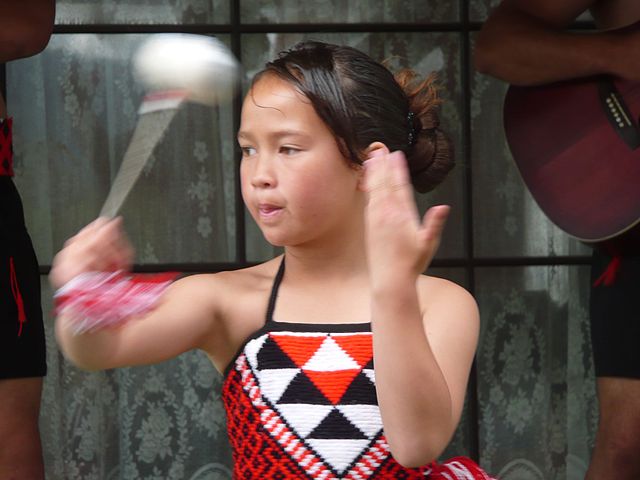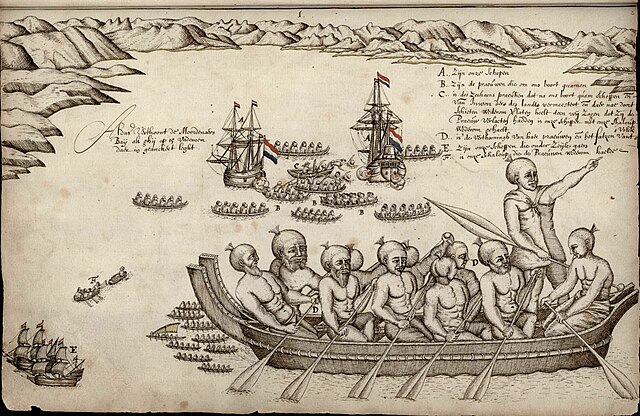Kapa haka is the term for Māori action songs and the groups who perform them. The phrase translates to 'group' 'dance'. Kapa haka is an important avenue for Māori people to express and showcase their heritage and cultural Polynesian identity through song and dance.
Tairawhiti Society perform action songs at Whakarewarewa Model Village, Rotorua Maori Concert January 1975.
Young Māori girl performing with poi
Young Māori man with taiaha performing kapa haka
Māori are the indigenous Polynesian people of mainland New Zealand. Māori originated with settlers from East Polynesia, who arrived in New Zealand in several waves of canoe voyages between roughly 1320 and 1350. Over several centuries in isolation, these settlers developed their own distinctive culture, whose language, mythology, crafts, and performing arts evolved independently from those of other eastern Polynesian cultures. Some early Māori moved to the Chatham Islands, where their descendants became New Zealand's other indigenous Polynesian ethnic group, the Moriori.
Māori performing a haka (2012)
Early Archaic period objects from the Wairau Bar archaeological site, on display at the Canterbury Museum in Christchurch
Model of a pā (hillfort) built on a headland. Pā proliferated as competition and warfare increased among a growing population.
The first European impression of Māori, at Murderers' Bay in Abel Tasman's travel journal (1642)







